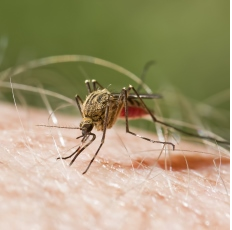Malaria, also known as plasmodium infection, is a disease typically transmitted through the bite of an infected Anopheles mosquito. Infected mosquitoes carry the Plasmodium parasite and when this mosquito bites you, the parasite is released into your blood stream. Malaria is typically found in tropical and subtropical climates where the parasites can live. It is very common in Nigeria as there are more than 1.5 million cases per year in Nigeria. A lot of people believe that Malaria is not fatal. On the contrary, malaria is highly fatal. In 2014 alone, there were an estimated 584, 000 deaths from malaria. Malaria is one of the world’s deadliest diseases, and remains one of the top child killers on the planet. Malaria can cause a number of life-threatening complications such as swelling of the blood vessels of the brain, or cerebral malaria, an accumulation of fluid in the lungs that causes breathing problems, organ failure of the kidneys, liver, or spleen, low blood sugar, etc.
MYTHS ABOUT MALARIA
Mosquitoes bite only at night.
Once you get malaria once, you can never get it again
If I eat or drink this particular item, it will keep mosquitoes away.
You’re safe if you are in an air-conditioned room.
I have complete immunity to malaria.
MALARIA SYMPTOMS
The symptoms of malaria typically develop within 10 days to four weeks following the infection. In some cases, symptoms may not develop for several months. Some malarial parasites can enter the body but will be dormant for long periods of time. Common symptoms of malaria include:
Fever
Profuse sweating
Headache
Nausea
Muscle pain
TREATMENT OF MALARIA
Once you notice the above stated symptoms, consult a doctor. A blood test can diagnose it. However, you can treat malaria with drugs. The type of drug depends on which kind of malaria you have and where you were infected. This is the reason why consultation of a doctor is important. Do not self-diagnose.
PREVENTION
- Always use a bed-net impregnated with insecticides and ensure it is properly tucked in.
- Avoid sleeping outside or in the vicinity of areas where mosquitoes like to live, e.g. standing water (tyres, lakes, waste dumps).
- Use mosquito repellent.
- Take antimalarial medication, as prescribed by the doctor, to reduce your chances of getting the disease and ensure to complete the dosage.




